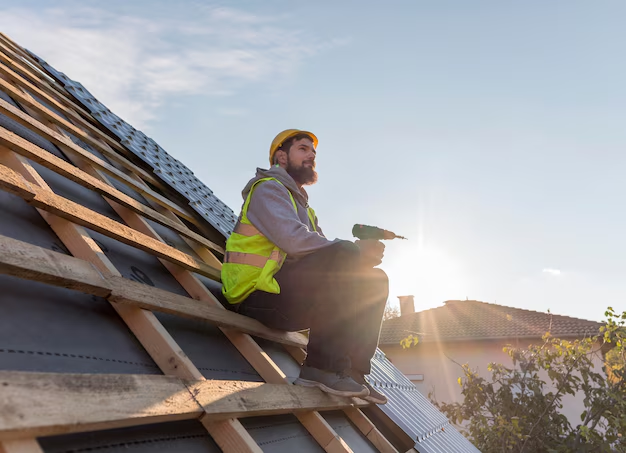How Much Will Replacing Your Roof Really Cost You?
When it comes to home improvements, replacing a roof often tops the list as one of the most significant—and costly—projects. Knowing what to expect financially is crucial for homeowners gearing up for this essential upgrade. So how much should you budget for a new roof?
The average cost to replace a roof typically ranges between $5,000 and $10,000 in the United States, but that figure can vary dramatically. Several factors contribute to this variance, including the size of your roof, the materials you choose, your location, and the complexity of the job.
Key Cost Factors:
Size of the Roof: Roofers typically charge per square foot, so large roofs cost more.
Material Selection: Common materials like asphalt shingles range from $3 to $5 per square foot, while premium materials like slate or metal can jump to $10 to $15 per square foot.
Labor Costs: Labor usually constitutes about 60% of the total roof replacement cost. In high-cost labor areas or during peak seasons, this can swell.
Roof Pitch and Design Complexity: Steeper roofs or those with many angles demand more effort and materials, thereby increasing costs.
Local Weather Conditions: Harsh climates may necessitate additional features like waterproof underlayment, impacting the final price.
Understanding these factors will help you get a more accurate estimate tailored to your specific circumstances.
Beyond the Budget: Financial Assistance and Financing Options
The sticker shock of a roof replacement might be intimidating, but several financial routes can ease the burden.
Government Aid Programs
While not universally available, some states offer weatherization assistance programs to help mitigate costs for essential home repairs, like roofing. Researching local government resources might uncover funding or low-interest loans specifically aimed at energy-efficient upgrades.
Financing Through Roofing Companies
Many roofing companies provide flexible payment options to spread out the cost over time. These often include in-house financing, low-interest loans, or promotional periods like "same as cash" deals that can be paid off without interest if managed wisely.
Home Improvement Loans
Banks and credit unions offer home equity loans or lines of credit that can be excellent options if you have built up equity in your home. These loans typically offer lower interest rates compared to unsecured loans.
Credit Card Solutions
While credit cards shouldn't be your primary method for such a significant expense due to higher interest rates, using them strategically for smaller portions of the project—especially if they offer rewards or cashback—can be a secondary option.
Educational Grants and Special Programs
Some nonprofit organizations provide grants for veterans, low-income families, or individuals with disabilities. While not directly related to roofing, identifying these resources may free up funds in other areas of your budget.
Replacing a roof is more than just a home improvement; it’s an investment in your property's safety, value, and efficiency. Understanding costs and researching financial solutions can keep your wallet safe from leaks.
💡 Financial Assistance Snapshot:
- 🏠 Weatherization Assistance Programs: Check local government websites for state availability.
- 🔧 In-House Roofing Company Financing: Explore flexible payment plans directly from providers.
- 💳 Home Equity Loans: Lower rates through banks or credit unions based on your home’s equity.
- 💼 Specialized Grants: Look for dedicated grants for veterans or specialized needs.
- 📊 Strategic Credit Card Use: Use cards for segments of the expense with potential rewards.

